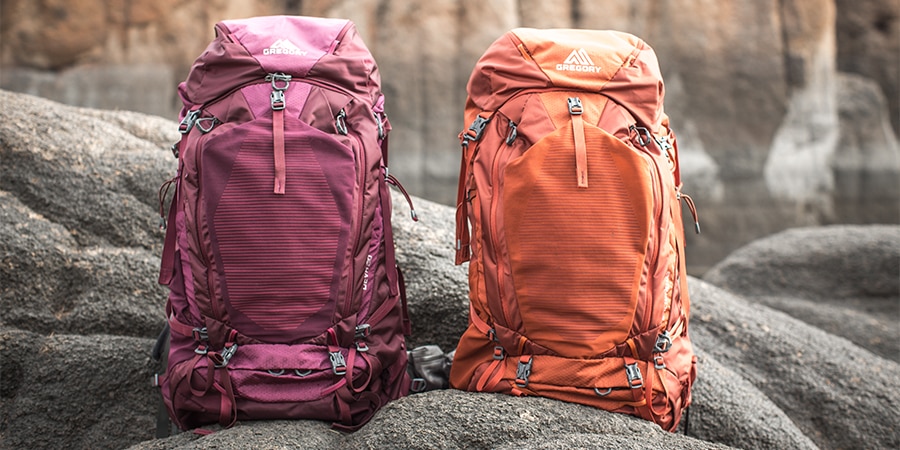The backpack is the backpacker’s most important equipment, but it is also an excellent option for those who need to carry their bags for long distances or even stay in hotels without an elevator. Therefore, choosing the right backpack is essential to carry large weights on your back with much more comfort. So, we’ve separated some tips for you to know how to choose the ideal backpack.
Literage
Backpacks are categorized by their capacity in liters (equivalent to the weight they can carry). The sizes and the weight (of the empty backpack itself) can significantly vary from one brand to another.
The most common backpacks are 45 liters, commonly used for shorter trips. Then comes 75 liters for long trips and 120 liters or more for trekking, camping, and other long trips, where you need to carry a lot of items or weight. With the image below, you can have a more precise idea regarding the weight of the backpacks:
Backpacks With Cart
If you don’t want to carry your backpack only on your back, many brands now produce convertible backpacks with additional cross straps or wheels and a strap. The advantage is that you can take a break from time to time, which is nice, especially when you have a really heavy and bulky backpack with you. The downside is that the wheels and handle add extra weight to your load and take up precious space inside your backpack.
The attack backpack usually varies between 5 to 20 liters and can be attached to the backpack, making locomotion much easier. They are beneficial, as, in addition to serving hand luggage, they can also be used on a day-to-day basis while traveling to carry a sweater, raincoat, camera, etc.
Material And Quality
Once you know your backpack’s liter, your first concern should be with the material. The strength and material of your backpack should be your priority, as it’s what will prevent it from letting you down during the trip. So, don’t go for the cheapest or prettier one. Look for a strong thread and check the finish and stitching of your future travel companion.
Backpacks made of checkered fabric tend to “contain” the holes, thus preventing them from becoming larger tears. In addition, backpacks are made of synthetic fibers, polyester, and polyamide. These materials are long-lasting and resistant to abrasion, cuts, and tears. In other words, perfect to resist friction in luggage compartments, airports, etc.
Another thing: unforeseen events (always) happen. So, regardless of the material in your backpack, I recommend always carrying a large needle and a firm thread if you need to make any emergency repairs.








